Braden Storytelling Grant
Each year, the Stanford Storytelling Project awards Braden Grants to a small number of students to support the research, writing, and production of audio documentaries. The aim of the program is to help students learn how to tell powerful, research-driven stories based on testimony they gather through interviews, research, or oral history archives. Grantees receive up to $2,500, as well as teaching, training, and mentorship during the period of the grant (March-December). In January of each year, all of the documentaries are aired on KZSU and published on the Soundings podcast. All pieces will be considered for inclusion in State of the Human, the SSP’s premier, award-winning podcast. State of the Human episodes are aired weekly on KZSU, Stanford’s public radio station, and some stories reach national broadcast outlets.
Episodes

Saturday Dec 17, 2016
Saturday Dec 17, 2016
Two years after the death of one of Canada’s most beloved slam poets, Zaccheus Jackson is remembered for the work he did in mentoring the next generation of poets, showing pride in his Indigenous heritage, and building a vibrant, creative community. A poet, an arts educator, an artist, and a friend offer their thoughts on his legacy, then and now, as a former mentee travels to the places that started it all.
Featuring: Zaccheus Jackson, Johnny Macrae, Marie Wustner, and Jillian Christmas
Producer: Eva Louise Grant (evagrant@stanford.edu)
Music: Dry Air - Poddington BearRecorded samples of music (with artist's permission)Original compositionsGrandfather Song - Mob BouncePeace Era - Mob Bounce
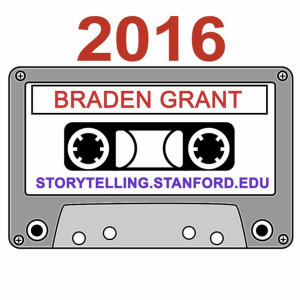
Saturday Dec 17, 2016
Saturday Dec 17, 2016
A story about professionals in various fields involved in end-of-life caregiving. As a premedical student, I explored their experiences, both negative and positive, for the purposes of finding purpose and direction through my pre-professional journey (and in life).
Featuring: Torrey Simons, MD, Joshua Fronk, MD, Jo Darius, Heather Shaw, NP, Vilma Buck, Colleen Vega, NP, Lynn Hutton, LCSW, Carol Stasio, LCSW, David Magnus, Ph.DProducer(s): Lauren Joseph, storytelling.stanford.eduMusic: FreeSound.org, Podington BearProduction date: Dec. 12, 2016

Saturday Dec 17, 2016
Saturday Dec 17, 2016
In this story, Nicole Bennett-Fite follows the modern cryonics movement and what it says about our desire for immortality.Produced by: Nicole Bennett-Fite
Jim Yount is chief operating officer of the American Cryonics Society.
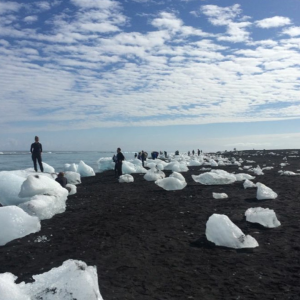
Saturday Dec 17, 2016
Saturday Dec 17, 2016
Iceland’s Concealed Conservationists is about the elf population in Iceland and how Icelanders’ tradition of hidden creatures living in the landscape encourages a deep respect for nature and a sense of responsibility to preserve the wilderness which is an essential part of Iceland’s culture and identity. But over the past few years the numbers of tourists travelling to Iceland has increased drastically as people from other countries seek these rare and dramatic locations and so Iceland’s untouched wilderness is at risk of losing its essential character. This story is about the landscape of Iceland and the magic and life that it holds, and Icelanders’ efforts to ensure that it is not lost.
Produced by: Michaela EliasFeaturing: Michaela Elias, Steinar Kaldal, Olof Yrr Atladottir, Oddur Sturluson, Ragga Jonsdottir, Terry Gunnel, Gudmundur Ögmundarson
Producer(s): Michaela Elias, storytelling.stanford.eduMusic: Two Stragers, Rachel Mason, Live at WFMU on Scoot Williams showSong Four, Bridget St John—Live at WFMU’s Monty HallCalendula, Ava Zandieh, Patterns and DronesHenfight, Itasca, Live at WFMU on The Avant Ghetto with Jeff ConklinOpen your eyes, Jarkko Hietanen
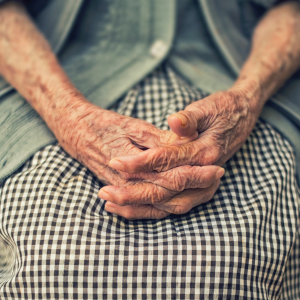
Saturday Dec 17, 2016
Saturday Dec 17, 2016
After I retired I thought… what do I do next?” We all the know the rags to riches story of immigration and the American dream – but what happens next? The East and West have clashing views of what it means to age, and each person has to define for themselves what it means to grow old in a country that’s not their own. This piece tells the stories of immigrants learning to grow old in America, and how they have found their homes in each other during that process.
Produced by: Annabel ChenFeaturing: Tei Decus, Ann Jordan, Nori Kobayakawa, Jean Yih, Gwen Yeo, Ousha Pancholi, Kusam PatelMusic: Fragile, do not drop (Podington Bear, Tender); Gentle Chase (Podington Bear, Background), CSM (Podington Bear, Neoclassical), Triste (Podington Bear, Solo Instruments), Wilt (Podington Bear, Duets)
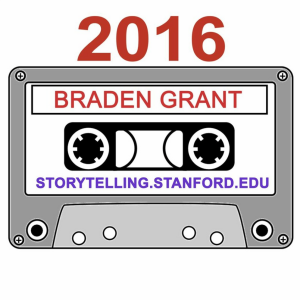
Saturday Dec 17, 2016
Saturday Dec 17, 2016
In the rural Himalayas healers called dhami have used local plants and mantras to treat the sick for thousands of years. However, westernized medicine is now coming into the area and rendering the traditional ways obsolete. The tension between between the two healing practices plays itself out in a surprising way.
Produced by: Christopher LeBoa
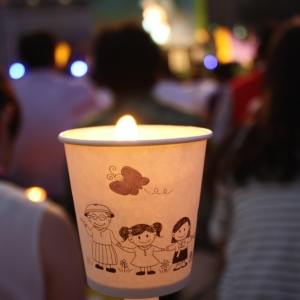
Saturday Dec 19, 2015
Saturday Dec 19, 2015
The stories of Korean comfort women were left untold for decades, until one woman broke the silence in 1995, 50 years after the end of World War II. Since then, several brave women have come forward with their experiences of forced prostitution for the Japanese army. This is the story of one woman, Gil Won-ok, after she was taken at the age of 13. She speaks for the women and girls whose stories were left untold, and the victims of human trafficking today.
Featuring: Gil Won-ok, Claire SchoenProducer: Yegina WhangMusic: Sound effects and music from freemusicarchive.org, all other ambient recorded by Yegina Whang

Saturday Dec 19, 2015
Saturday Dec 19, 2015
Carolyn and Corina survived abuse, illness, addiction, crime, and prison. What ways have they found to successfully reintegrate into the world? This is a story of how we heal ourselves against the specters of our pasts.Featuring: Corina Shortall, Carolyn CrowleyProducer: Chuong Phan, with help from Will Rogers
Image: Meltwater Via flickrwww.flickr.com/photos/meltwater/578304919/
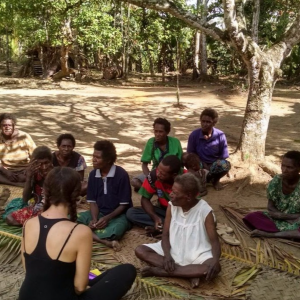
Saturday Dec 19, 2015
Saturday Dec 19, 2015
In an isolated fishing village in Papua New Guinea, a linguist sets out to write the first dictionary of the Ende language. Not long after she begins, she finds that one word was more difficult to translate: mokwang, Ende’s word for love, which also means survival.
In this story, we’ll hear how Ende women define what it means to love in Limol, Papua New Guinea.
Featuring: Grace Maher, Lois Sadua (translator), Musato Giwo (translator), Joshua Dobola, Robai Reend, Donai Kurupel, Manaleato Kolea, Jenny Dobola, Pingam Uziag, Loni Garaiyi, Sandra Dikai, Merol Kwe, Wagiba GeserWriter: Kate L. LindseyProducers: Kate L. Lindsey, with help from Claire SchoenMusic: Women from LimolImage caption: Kate Lindsey listening to Limol womenImage photographer: Grace MaherProduction date: April 16th, 2016
2023 Braden Storytelling Grant







